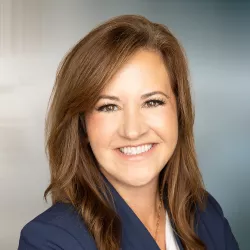
Case Overview
For individuals who experienced sexual abuse as a child, lookback windows enacted by states can provide an opportunity to seek justice where civil claims may have previously been time-barred by applicable statute of limitations. Meaning, if you were previously unable to initiate a lawsuit for childhood sexual abuse because the time to file claim(s) had expired under applicable statutes of limitation, a lookback window may provide a limited timeframe in which to file those claim(s) in court. Many states have enacted lookback window legislation, temporarily barring statute of limitations as a defense, giving victims more time to file civil claims.
Key takeaways about lookback windows
- A lookback window is a statute that extends an expired statute of limitations for a limited time.
- Lookback windows have been commonly used in cases involving childhood sexual abuse.
- An increasing number of states is enacting lookback windows to give victims of childhood sexual assault a chance to recover damages.
What is a sexual abuse lookback window?
A lookback window is state legislation that temporarily reopens expired statutes of limitations for civil lawsuits. A statute of limitations (SOL) is the time within which a person must file their case. SOLs impose permanent deadlines. However, lookback windows create legislative exceptions that override expired deadlines for a limited time.
For example, New Jersey laws required victims of childhood sexual abuse to file civil causes of action related to their sexual abuse within two years after turning eighteen years old. Meaning, the survivor only had until the day before their twentieth birthday to file a lawsuit for claims involving childhood sexual abuse. In 2019, New Jersey enacted legislation that not only provided a two-year lookback window (December 1, 2019 to November 30, 2021) for victims whose claims were previously time-barred, but also extended the SOL for survivors of childhood sexual abuse to age 55 (or seven years after they became aware of their abuse, whichever is later).
Lookback windows are most often used in cases involving childhood sexual abuse. Most survivors of childhood sexual abuse do not disclose their story until an average age of 52 years old. Trauma related to the abuse and institutional cover-ups often delays abuse claims coming to light. The creation of these lookback windows recognizes that many survivors delay the disclosure of their sexual abuse and need additional considerations, like additional time to file a case, to make the civil litigation process more equitable to survivors.
Notable state laws and past lookback windows
A national effort is underway to reform SOLs and pass lookback and revival laws to help prevent childhood sexual abuse and empower victims to take action, even years after the abuse occurred. Read more below.
California – AB 218
California Assembly Bill 218 (AB 218), passed in 2019, substantially extended the lookback window for adult survivors of childhood sexual assault to 40 years of age or up to five years after discovery of the abuse, whichever is later. AB 218 allows victims to recover triple damages if the assault was covered up to hide evidence. Beginning in 2020, the law also established a three-year lookback window to file claims previously prohibited by the statute of limitations.
New York – Child Victims Act (CVA)
The New York State Senate passed the Child Victims Act (CVA) in 2019. The CVA extended the period during which victims of child sexual assault can file civil lawsuits against their perpetrator and the institutions that protected them. Under this law, child sexual assault survivors can bring lawsuits until they turn 55. They were previously prevented from bringing such lawsuits after their 23rd birthday.
New Jersey – 2019 Lookback Law
New Jersey’s Child Victims Act, passed in December 2019, extended the state’s statute of limitations for child sexual abuse claims to age 55 (or seven years after a victim became aware of the abuse), whichever is later. It also provided a two-year “revival” period for victims of child sexual abuse to bring civil lawsuits alleging child abuse against individuals and institutions, even if their claims had expired or had been time-barred. New Jersey’s law is limited to individual claims and does not apply to class action lawsuits.
These laws and similar statutes passed in other states have spurred significant legal activity against churches, schools, youth groups, and other non-profit organizations and public entities that had previously been immune to liability for past acts of child sexual abuse.
Frequently asked questions about lookback windows
Does a lookback window override the statute of limitations?
Lookback windows are passed by the state legislature to interact with existing civil deadlines. They provide a temporary legal exception for certain claims, rather than permanently extending the statute. After the window closes, standard statutes of limitations apply again.
Is there a federal lookback law?
No, lookback windows are enacted at the state level, not the federal level. Lookback statutes vary widely in scope and timing, as determined by that state’s legislature.
Can I sue an institution like a church or school under a lookback window?
Many lookback laws allow survivors to bring claims against both abusers and institutions, such as churches and schools, that enabled or covered up the abuse.
What types of abuse are covered by lookback window laws?
Most lookback laws focus on childhood sexual abuse, but coverage details depend on the statute and state. Some states have passed lookback laws that focus on sexual assault, adult sexual abuse and other sex-related offenses.
Do I need proof to file under a lookback window?
Civil lawsuits for sexual abuse require a burden of proof known as “preponderance of the evidence.” This means a victim must prove that it’s more likely than not (a 51% or greater chance) that the abuse occurred. Various types of evidence (testimony, documents, medical records, witness statements, etc.) may be used — even decades later — to prove the allegations. Given the time that may have elapsed between the sexual abusive acts and filing a civil lawsuit, oftentimes a survivor’s testimony is the best proof or evidence. A lawyer at Motley Rice with knowledge and experience litigating childhood sexual abuse claims can discuss your specific case and what evidence may be available to you to pursue your claim(s).
Can I file a claim anonymously?
Yes, victims of sexual assault often have the option to file cases anonymously, depending on the jurisdiction they are filing suit.
What happens after I file a lawsuit under a lookback window?
A lawsuit filed under a lookback window usually follows the typical civil litigation timeline, although some states might offer streamlined procedures. After the initial filing, the defendant must issue a response. Discovery will then begin, and the parties will exchange information about the case and explore possible paths for resolution. Many childhood sexual abuse cases may settle before trial, particularly when institutions want to avoid public scrutiny. If settlement fails, the case will go to trial and a judge or jury will decide whether the abuse occurred, who is liable, what damages the client experienced related to the abusive acts and negligence and the appropriate financial compensation.
Our sexual abuse litigation experience
Motley Rice lawyers currently represent several victims in litigation filed under New York’s Child Victims Act. These victims allege sexual abuse by clergy members and that the Catholic Church suppressed the abuse. We represent survivors of sexual abuse involving the Church of Jesus Christ of Latter-day Saints, or Mormon Church. Our lawyers also represented two other “Jane Does” in sexual assault cases that recently resolved through confidential settlements. One case involved alleged abuse at Choate Rosemary Hall.
Our attorneys represented two “John Does” who were abused as children by former Charleston, South Carolina, teacher Skip ReVille. ReVille was a teacher, foster parent, coach and church youth group leader. In June 2012, ReVille pled guilty to the sexual assault of 23 boys; however, the number is believed to be much higher.
A confidential settlement agreement was reached between two of ReVille’s victims and their school, Pinewood Preparatory, where ReVille worked for years. As part of the settlement, the school adopted a new Child Protection Policy, implementing and enforcing stricter procedures to protect students and make employees and volunteers aware of the threats that abuse poses to children.
When reporting these acts, whether for yourself or to report your knowledge of sexual abuse, Motley Rice keeps reports of sexual abuse and assault confidential. By coming forward, you have the power to hold accountable the people who have taken advantage of you.
Key takeaways
What is a sexual abuse lookback window?
Notable state laws and past lookback windows
Frequently asked questions about lookback windows
Our sexual abuse litigation experience
- Sources
- California School Boards Association. Assembly Bill 218: What board members should know about the new childhood sexual assault law.
- Child USA. 2025 SOL Tracker.
- Child USA. Statute of Limitations Reform Serves the Public Interest: A Preliminary Report on the New York Child Victims Act.
- Cornell Law School. Preponderance of the evidence.
- DuPage County Bar Association. Eliminating the Statutes of Limitations for all Sexual Assault Crimes.
- Fiscal Crisis & Management Assistance Team. Childhood Sexual Assault: Fiscal Implications for California Public Agencies.
- National Center for Victims of Crime. Criminal and Civil Justice.
- National Conference of State Legislatures. Child Sexual Abuse: Civil Statutes of Limitations.
- Illinois General Assembly. Illinois Compiled Statutes. ILCS 5/Sec. 13-202.
- The National Law Review. New Jersey’s New Child Victims Act Expands Opportunity for Filing Abuse Claims and Removes Former Immunity for Non-Profit Organizations and Public Entities.
- New York State Coalition Against Sexual Assault. Child Victims Act Resource Guide.
- The New York State Senate. Senate Bill S2440. Signed By Governor. 2019-2020 Legislative Session.
- RAINN. State by State Guide on Statutes of Limitations.
- Reporters Committee For Freedom of the Press. White Paper: Anonymous Civil Litigants.


